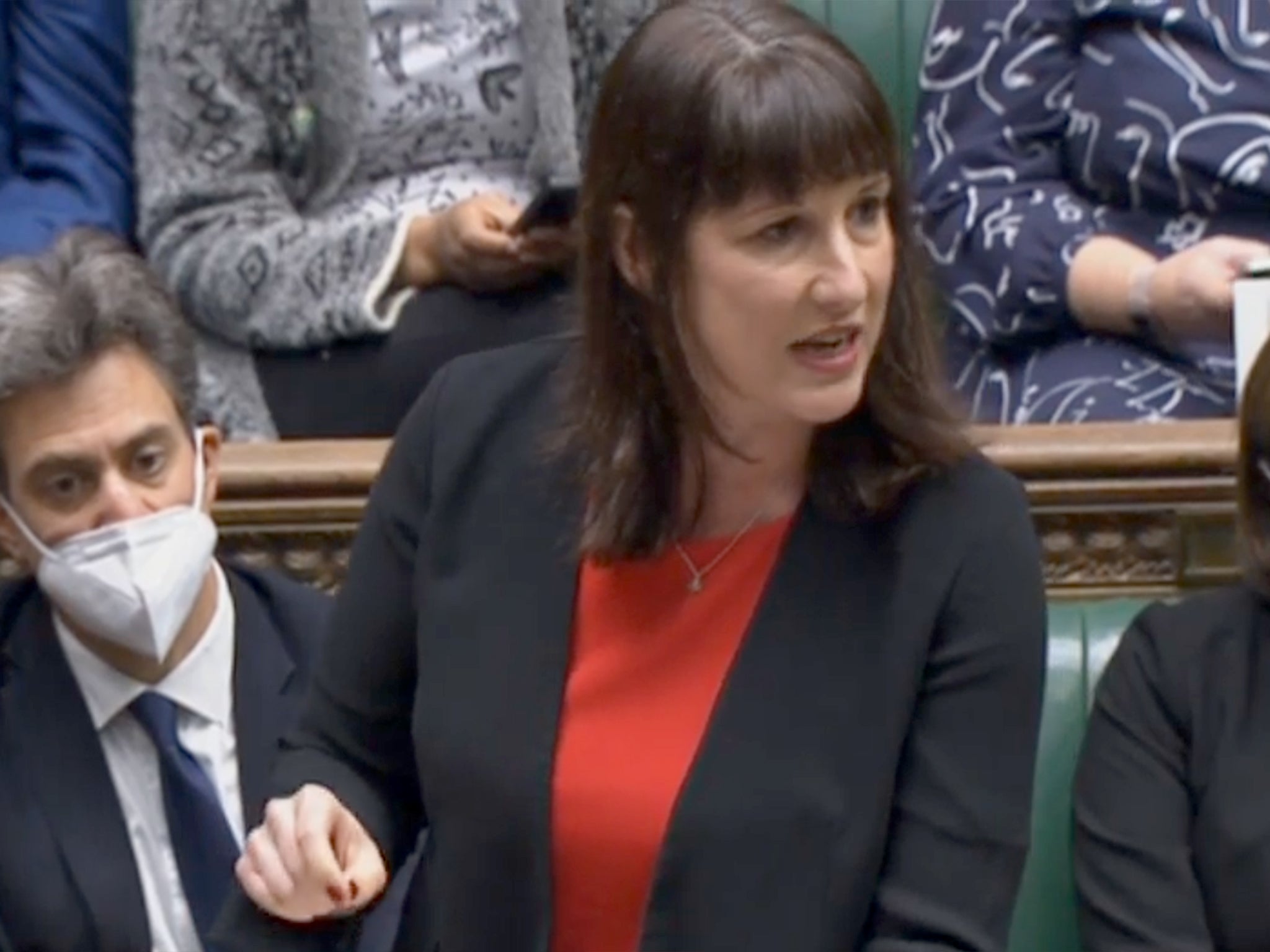Labour’s Rachel Reeves has finally got it right on rising energy bills
Politically, Reeves has ended up in roughly the right place, proposing targeted help for people least able to afford higher bills, while keeping the headline-grabbing and slightly Brexity cut in VAT, writes John Rentoul


No sooner had Rachel Reeves, the shadow chancellor, stood up in the Commons to make the case for Labour’s plan to protect people from rising energy costs than she was interrupted. Gary Sambrook, a Conservative MP, pointed out that her plan to cut VAT on energy bills was only possible because Britain had left the EU – which she opposed.
She was unembarrassed. “We want to make Brexit work,” she told him. “We’ve got this power; let’s bring it in now.” In the looking-glass world of politics, Labour proposes a policy that would be possible only because it lost, while the government refuses to take a populist measure that would allow it to proclaim a Brexit dividend.
Indeed, what was significant about today’s Labour-inspired debate was that Simon Clarke, the chief secretary to the Treasury, ruled out a VAT cut. It had been speculated that the government might cut some of the ground from under Reeves’s feet by adopting her policy, and claim it as a Brexit win, but Clarke was explicit in saying that he would not.
Even more interesting is the reason Clarke gave for opposing the policy: “It would mean subsidising some of the fuel consumption of the wealthiest.” Now we really were through the looking-glass, where Labour was proposing a policy that would benefit the rich, while the Conservative government argued that support should be targeted “most on those who need it most”, as Michael Gove, who I suppose I must call the levelling up secretary, put it yesterday.
The argument about whether a cut in VAT on energy bills is progressive or regressive is complicated. Reeves rejected the charge of helping the rich, pointing out that poorer households spend a larger proportion of their incomes on gas and electricity bills than richer ones. But it is still the case that the cash benefit of a cut in VAT tends to be greater for people who live in bigger houses, who therefore use more energy.
The most progressive policy would be to increase universal credit and other state benefits, so that people on lower incomes get direct and targeted cash help with higher bills. But neither main party wants to propose that. The Treasury has just fought a long battle to end the £20-a-week temporary uplift in universal credit, and is determined to hold on to that gain for the public purse. Nor does Labour want to suggest an across-the-board increase in benefits, because that would identify it as the party of welfare handouts.
The surprising result, therefore, is that Labour and the Tories have ended up in roughly the same place. Labour’s plan still includes the cut in VAT for a year, worth £89 per household (more to people living in bigger houses and less to those in smaller homes), but the main help would be to increase the Warm Homes Discount to £400 and extend it to all of the poorest third of households. The Warm Homes Discount is worth £140 currently, administered by the energy companies and claimed by fewer than one in 10 families.
To keep up to speed with all the latest opinions and comment, sign up to our free weekly Voices Dispatches newsletter by clicking here
The government has not yet decided its position, as Rishi Sunak, the chancellor, is in negotiation with Boris Johnson, while Kwasi Kwarteng, the business secretary, is talking to the energy companies. But it seems likely that the Treasury will end up with targeted support, either using the Warm Homes Discount scheme or something similar, probably coming into effect after it has postponed the lifting of the cap on energy bills until after the May local elections.
Presumably, the government plan will not be as generous as the Labour one, and it may not be (partly) funded by a windfall tax on oil and gas companies – a policy that Reeves stole from the Liberal Democrats. But the government will have to do something, and it will be similar to the Labour plan.
Politically, Reeves has ended up in roughly the right place, proposing targeted help for people least able to afford higher bills, while keeping the headline-grabbing and slightly Brexity cut in VAT. Conservative MPs were furious in the debate, because they know what she is up to. Labour wants to say “nasty Tories voted against a cut in VAT on energy bills”, said Lee Anderson, MP for Ashfield, “relying on the great British public not knowing how the process works in this place”.
He is right, in that Labour has not only come up with a credible policy close to what the government is likely to be forced to adopt, but has used Commons procedures to make life difficult for Tory MPs. Instead of simply tabling a declaratory motion, as is usual when an opposition party is given parliamentary time, Labour put down a motion to take control of the timetable to bring in a bill to cut VAT – a device used by MPs to frustrate a no-deal Brexit before the 2019 election.
No government with a functioning majority could tolerate such a challenge to its control of legislative business, so Tory MPs have to vote it down tonight – they cannot get out of it by abstaining, which has been their way of dodging awkward votes in the past.






Join our commenting forum
Join thought-provoking conversations, follow other Independent readers and see their replies
Comments